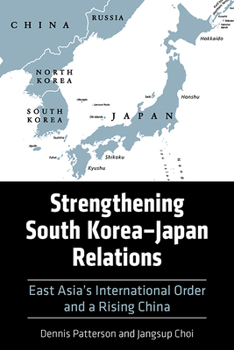Strengthening South Korea-Japan Relations: East Asia's International Order and a Rising China
At the conclusion of World War II, no part of the world experienced a more dramatic transformation than East Asia. Political stability throughout the postwar period prompted exponential economic growth that ultimately established South Korea, Japan, and China as the region's most important powers. While many citizens of these nations now live in a time of unprecedented prosperity, the arrangement that supports such prosperity is fragile. China, with the second largest economy and a burgeoning military sector, is widely acknowledged as the preeminent rising world power. The onus of maintaining balance in the area rests primarily with South Korea and Japan in partnership with the United States. But because of long-standing weaknesses in South Korea-Japan relations and the United States' inconsistent commitment, the possibility that China could usher in a more uncertain era of revisionism has never been more likely. In Strengthening South Korea-Japan Relations: East Asia's International Order and a Rising China, Dennis Patterson and Jangsup Choi address the historical roots of this weak alliance. Combining decades of research with current public opinion data, the authors warn that the tendency of East Asian nations to rely on the United States to preserve the status quo has become dangerously unstable. A new strategy, one of cooperation and collaboration, is needed to prevent China from upending the liberal international order.
Format:Paperback
Language:English
ISBN:0813199220
ISBN13:9780813199221
Release Date:February 2024
Publisher:University Press of Kentucky
Length:240 Pages
Weight:0.76 lbs.
Dimensions:0.6" x 6.1" x 9.0"
Grade Range:Postsecondary
Customer Reviews
0 rating





